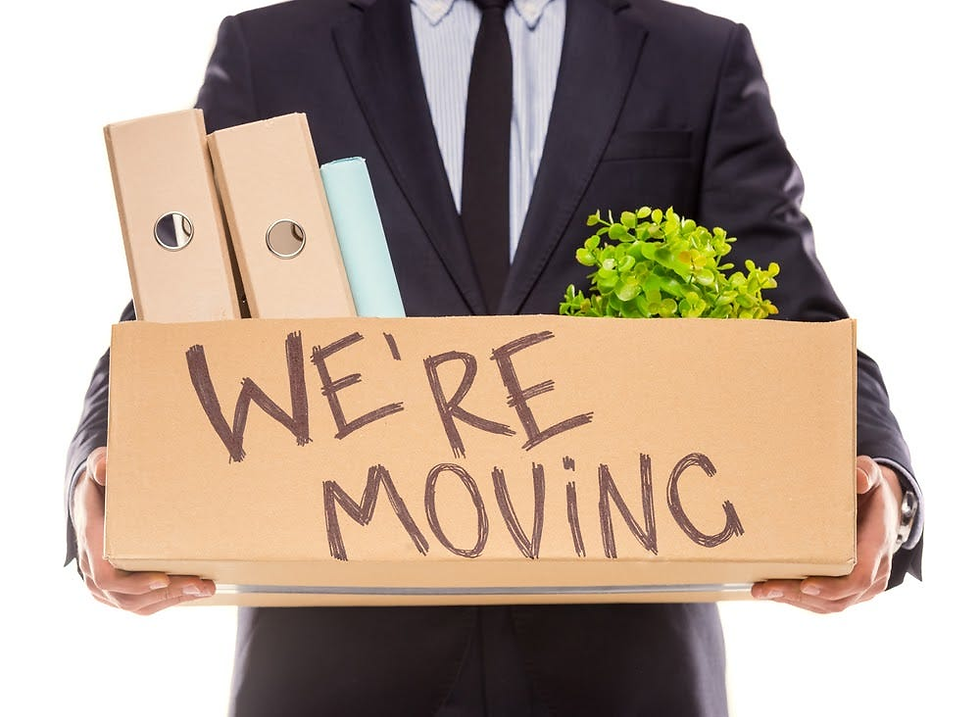Before You Relocate, Do These Things to Avoid Last-Minute Stress
- Staff Desk
- Aug 20
- 4 min read

Moving doesn't have to feel chaotic, but for many people, it does. Deadlines get closer, boxes stack up, and the smallest delay can throw off the entire process. The truth is, stress doesn't come from moving itself—it builds from everything we forget to do in time. That's why planning is key.
When you get ahead of the small things, the big day becomes more manageable. From clearing out early to storing stuff when needed, there are ways to take control and stay on top of the details.
Here are steps that help reduce pressure and make relocating feel less like a race and more like a routine.
Sort Out What You're Really Taking
Packing everything you own might sound easier than sorting, but it only adds weight and cost. Before you pack anything, go room by room and ask yourself: Do I use this? Do I like this? Will it fit or match in the new place?
Keep only what adds value
Donate or sell usable items you no longer need
Recycle broken or outdated things
This helps cut down what you move, and it gives you a clearer plan for packing.
Consider Storing Furniture in Storage Units
Some furniture isn't worth moving twice, especially when dates don't line up perfectly. Storing furniture in a storage unit gives you flexibility. You can move out on time without rushing big items into a new space that isn't ready yet. But don't just choose any storage unit. Check the following things first:
Look for a unit with strong security and climate control
Pick a location that's easy to access
Choose a provider that offers short-term options and a move-in truck
This way, your belongings stay safe while you handle other tasks. It also helps keep your current space clean if you're showing it for rent or sale.
Pack Based on Timing, Not Just Rooms
Packing by room sounds practical, but it doesn't always help when you are trying to find things quickly. A better way is to sort your belongings by how soon you'll need them.
Start with the stuff you don't touch often—things like holiday decorations, winter jackets, or that slow cooker you barely use. These can be packed first and stored out of the way. Items you use occasionally, like extra bedding or books, can go next. Keep your everyday essentials—like chargers, toiletries, and clothes for the week—until the end.
Here's a tip: label your boxes by both room and priority. For example, add "Use First" or "Open Last" on the side. This makes unpacking easier and faster. You won't be opening ten boxes just to find your coffee mug.
Label Clearly and Keep a List
Clear labeling makes unpacking smoother and less frustrating. Instead of writing just "kitchen," write something like "kitchen – mugs and plates." That way, you won't waste time opening every box to find what you need.
Number your boxes, too. Then, keep a simple list—either in a notebook or on your phone—where each number matches what's inside. This helps if a box gets delayed or misplaced. You'll know exactly what was in it and whether it needs urgent attention.
When it's time to unpack, this system also tells you which boxes to open first. It keeps things organized and saves you from unnecessary digging. A few minutes spent labeling and listing during packing can make your move much easier when it counts.
Book Movers or Transport Early
Waiting until the last minute to schedule movers or rent a truck can lead to problems. Services book up quickly, especially at the start or end of the month. The longer you delay, the fewer options you'll have—and prices tend to climb.
Start calling around as soon as your move date is set. Ask about availability, rates, and what's included in the quote. Always check if there are extra charges for stairs, timing, or additional labor.
Doing the move yourself? Make sure to reserve the right truck size ahead of time. Some companies also rent moving tools—like trolleys or furniture pads—that can make things easier.
A little planning here avoids a lot of stress later. Movers aren't always available on short notice, and scrambling for help days before your move is the last thing you need.
Have a Personal Day Bag Ready
Before you move, set aside one bag with items you'll need right away. This should include:
Toothbrush, charger, change of clothes
Basic kitchen items like a mug, snack, or water bottle
Any medication or papers you may need quickly
It's a simple way to ease the first night in your new place.
Conclusion
Relocating feels easier when it's broken into small, doable steps. Sort early, store what you don't need right away, and keep your essentials within reach. A trusted local storage provider with short-term units, climate control, and move-in help can make a big difference when timelines shift. With just a bit of prep, your next move can be calmer and more controlled.

Comments